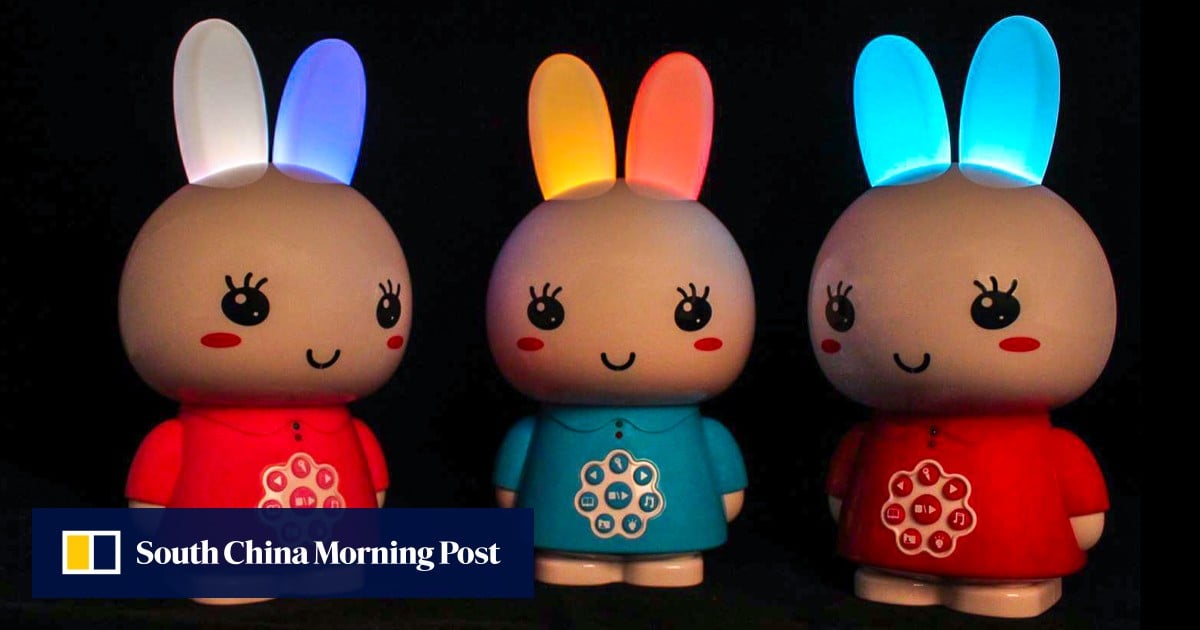Two Chinese innovators are exploring the use of generative artificial intelligence (AI) to revolutionize conventional companion toys into intelligent robots capable of engaging in natural conversations with children. This initiative aligns with the prevailing trend of incorporating technology into toys.
Established by Larry Wang and Guo Xinghua in August last year, FoloToy, a startup based in Shanghai, has collaborated with numerous toy manufacturers to leverage large language models (LLMs), such as the technology powering intelligent bots like ChatGPT. Their objective is to enhance toy concepts, introducing new products to the market in China and internationally.
This endeavor is part of the broader AI movement in China, catalyzed by the introduction of the US startup OpenAI’s ChatGPT in late 2022, which showcased the potential of generative AI to the global audience, as mentioned by Wang in a recent interview with the South China Morning Post.
Among FoloToy’s popular children’s offerings is Alilo Honey Bunny, a modernized version of an educational toy bunny preloaded with bedtime stories recordings.
?x-oss-process=image/auto-orient,1/quality,q_90/format,webp)
Enhanced with an in-house AI chipset, Alilo is engineered to engage users in human-like interactive dialogues, setting it apart from conventional conversational toys limited to specific commands.
FoloToy is also diversifying its product range to cater to adult consumers. In a recent collaboration with Yomiplanet, a Chinese art toy manufacturer, they introduced a limited-edition interactive figure named Frank Murphy. This AI-enabled companion can converse in six languages, including English, Chinese, and Japanese, retailing at 5,500 yuan (US$770).
A promotional video shared by Yomiplanet on WeChat showcased an individual querying Frank about Apple founder Steve Jobs’ potential reaction to the “world’s first AI toy figure.” The figure’s response hinted at Jobs acknowledging it as a notable technological advancement.
Amidst heightened export restrictions on AI chips by Washington, the availability of open-source LLMs from the US has empowered smaller Chinese startups like FoloToys to explore innovative applications for this rapidly evolving technology, despite their relative resource constraints compared to tech giants.
Utilizing open-source models and application programming interfaces from platforms like ChatGPT, developers can seamlessly integrate sophisticated models into their applications, marking a significant advancement for smaller players in the industry.
Wang expressed gratitude for the collaborative environment facilitated by these advancements, emphasizing the potential for smaller companies to achieve feats previously exclusive to larger corporations.
However, monetizing AI innovations remains a challenge for many companies. Li Di, CEO of Microsoft AI chatbot spin-off Xiaoice, cautioned about the complexities of commercializing AI during a forum discussion in December.
While Wang’s strategic focus on hardware, in addition to software, places FoloToy among a cohort of startups leveraging AI to gain a competitive edge over traditional smart device manufacturers, the global tech landscape witnesses a race among both newcomers and established industry players to develop consumer products powered by the next wave of AI technology.
Humane, a Silicon Valley startup founded by former Apple employees with experience in iPhone development, recently unveiled the Ai Pin—a compact screenless device interacting with users through an AI virtual assistant, signaling a shift towards more immersive human-machine interactions beyond the current smartphone-centric experiences.
Despite ongoing experimentation with diverse business models by companies venturing into AI-related domains, uncertainties persist about the optimal path forward, as highlighted by Wang from FoloToy.
Nonetheless, Wang emphasizes that AI can be not only a serious technological pursuit but also a source of enjoyment and amusement for users, underscoring the potential for AI-driven products to offer engaging and interactive experiences.










